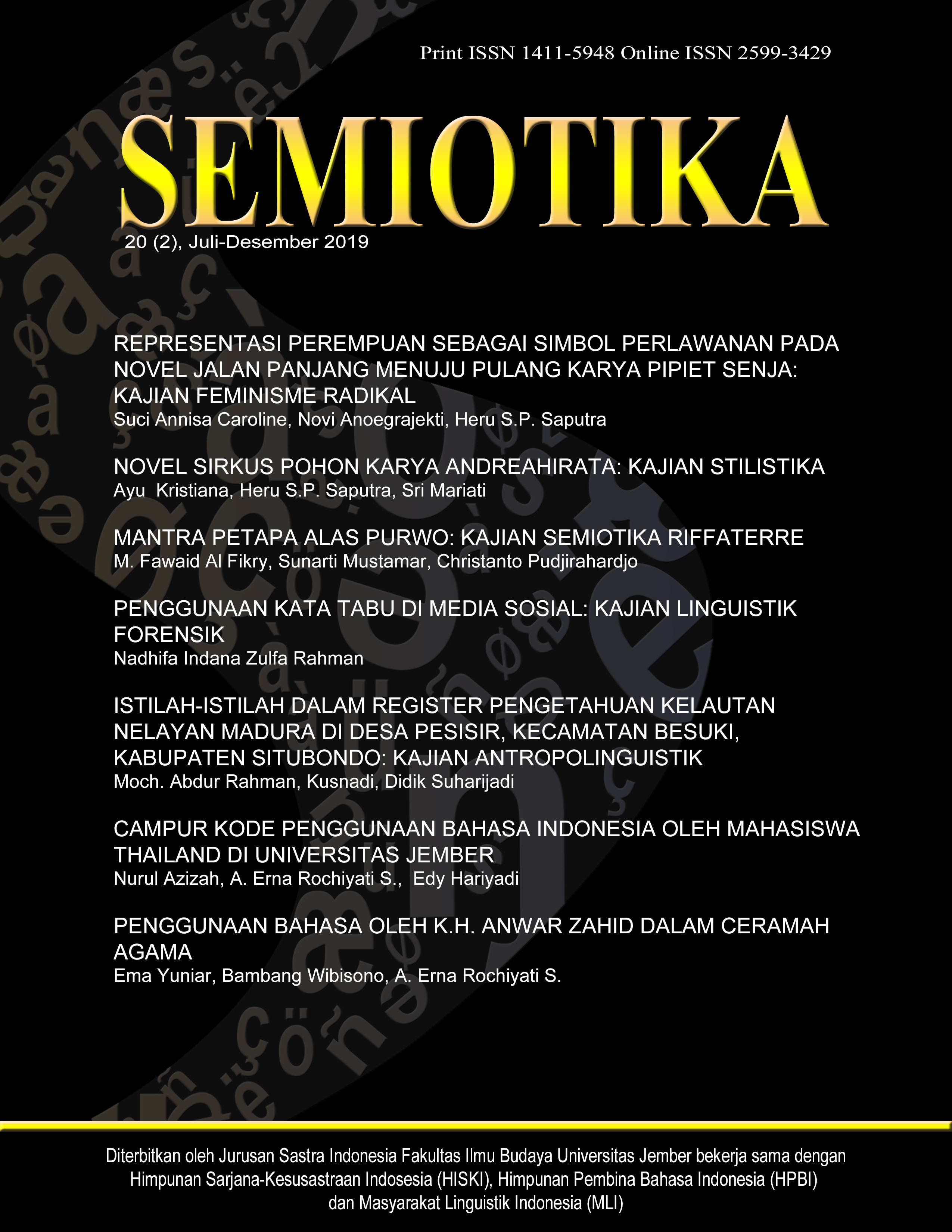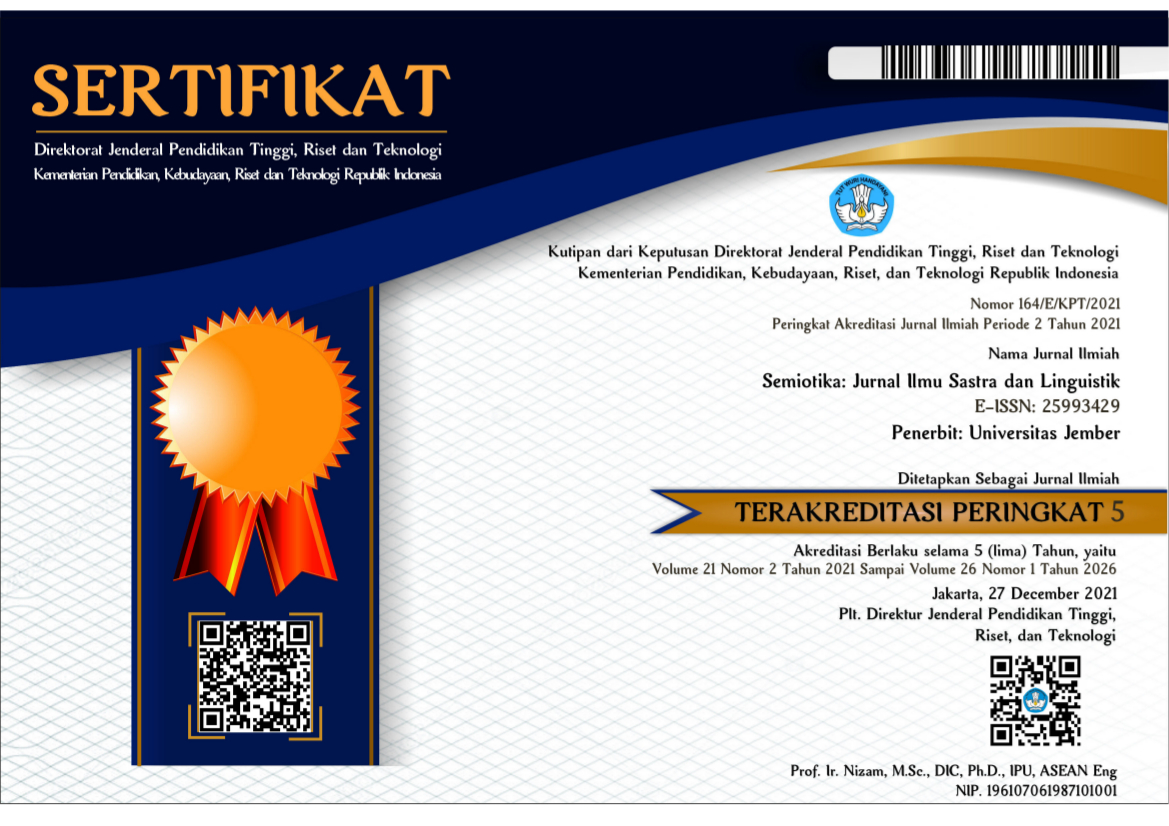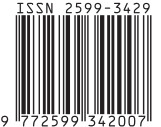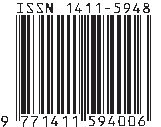ISTILAH-ISTILAH DALAM REGISTER PENGETAHUAN KELAUTAN NELAYAN MADURA DI DESA PESISIR, KECAMATAN BESUKI, KABUPATEN SITUBONDO: KAJIAN ANTROPOLINGUISTIK
Abstract
Ecological factors, the close relationship between fishing communities and the sea (nature) has given rise to various types of marine knowledge in such a way, which is used as an adaptive function in "conquering and navigating the sea" as an effort to maintain the stability of the family's survival. A local knowledge system that has delivered a sociocultural pattern of fishing communities has distinctive cultural values, which are different from the various surrounding communities. The register of fishermen's marine knowledge is a variation of language based on the function of use and the context of its use that reflects social processes, and contains different meanings with the types of meanings in lexical dan grammatical. This study aims to describe the shape and meaning of registers of marine knowledge of Madurese fishermen using anthropolinguistic studies. The method used is descriptive qualitative. Research data in the form of terms and meanings on their cultural functions in marine registers. Efforts to extract data were carried out by participant observation methods and in-depth interviews, supplemented by written notes and recording aids in the form of a cellphone recorder. Data were analyzed using interactive data analysis (reduction, presentation, and withdrawal / verification of data) and interpretive methods oriented to the point of view of the community under study. In its realization, the terms in the register are searched for their lexical meanings using the referential equivalent method, which matches the lexicon meaning in the MaduraIndonesian dictionary. Next the cultural significance is determined based on the sociocultural function of the fishermen's interpretation The fishery knowledge register can be classified into four subsystems, including; register of fishermen's marine knowledge relating to; (1) current conditions; (2) weather / climate conditions; (3) conditions of the fishing area (fishing ground) and signs of fish presence; and (4) the techniques and fishing tools used.
SEMIOTIKA has CC-BY-SA or an equivalent license as the optimal license for the publication, distribution, use, and reuse of scholarly work. Authors who publish with this journal retain copyright and grant the journal right of first publication with the work simultaneously licensed under a Creative Commons Attribution-ShareAlike 4.0 International License that allows others to share the work with an acknowledgment of the work's authorship and initial publication in this journal.
Attribution-ShareAlike
CC BY-SA










